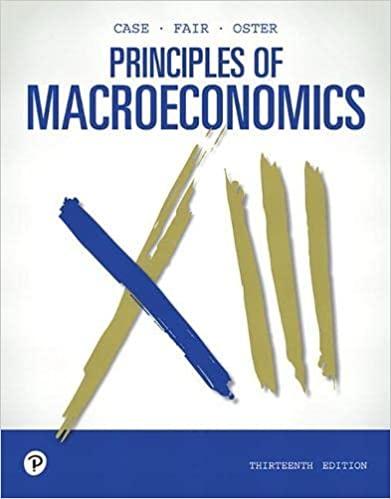Suppose that a simple society has an economy with only one resource, labor. Labor can be used
Question:
Suppose that a simple society has an economy with only one resource, labor. Labor can be used to produce only two commodities— a necessity good (food), and a luxury good
(music and merriment). Suppose the labor force consists of 100 workers. One laborer can produce either 5 units of necessity per month (by hunting and gathering) or 10 units of luxury per month (by writing songs, playing the guitar, dancing, and so on).
a. On a graph, draw the economy’s ppf. Where does the ppf intersect the axis? Where does it intersect the axis? What meaning do those points have?
b. Suppose the economy produced at a point inside the ppf. Give at least two reasons why this could occur.
What could be done to move the economy to a point on the ppf?
c. Suppose you succeeded in lifting your economy to a point on its ppf. What point would you choose? How might your small society decide the point at which it wanted to be?
d. Once you have chosen a point on the ppf, you still need to decide how your society’s production will be divided.
If you were a dictator, how would you decide? What would happen if you left product distribution to the free market?
Step by Step Answer:

Principles Of Macroeconomics
ISBN: 9780135162163
13th Edition
Authors: Karl Case, Ray Fair, Sharon Oster






